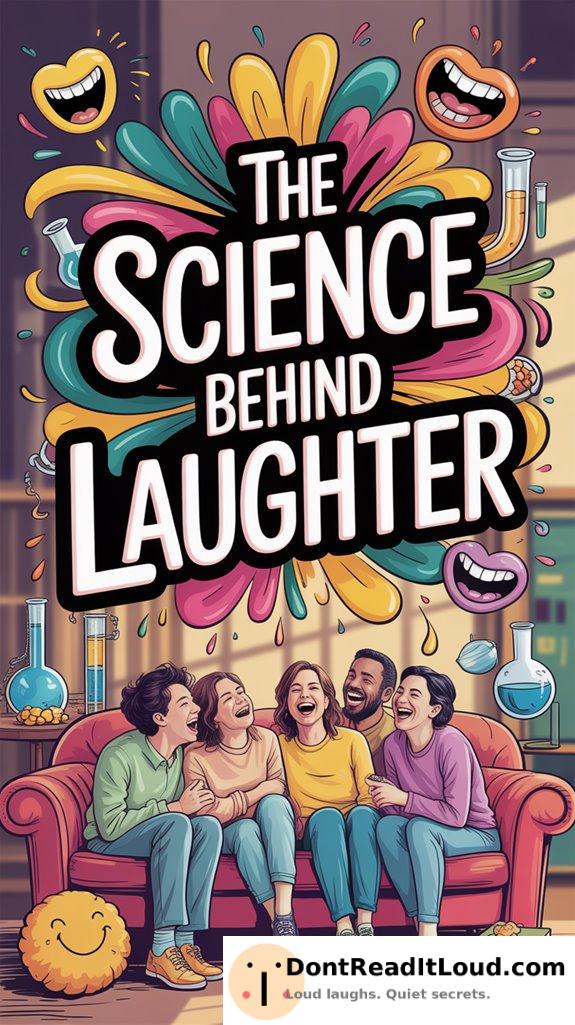
When you laugh, your brain lights up, triggering dopamine and feelings of joy. It relaxes your mind, lifts your mood, and brings people closer together. Laughter isn’t just fun—it’s good for your heart, reduces stress, and can even help your immune system. This universal expression connects people across cultures. Stick around to learn how laughter can enrich your life.
Understanding the Neurology of Laughter
Though often taken for granted, laughter is a complex response governed by intricate neurological processes. Envision your brain as a bustling comedy club where neural pathways are the comedians and neurotransmitter activity provides the punchlines.
When something tickles your funny bone, those pathways spring into action, firing like an applause sign, and neurotransmitters like dopamine and serotonin join the party.
Signals zip through different brain regions, producing that joyful feeling we recognize as laughter. Your prefrontal cortex, the brain’s decision-maker, figures out the joke, while the limbic system, the emotional hotspot, decides it’s hilarious.
The Psychological Effects of Laughter
Laughter isn’t just a physical response; it has powerful effects on your mental health. Picture yourself laughing, and notice how worries seem to fade away.
Humor offers an emotional break, giving your mind a chance to rest. You’re not only enjoying yourself but also sharpening your memory.
A good laugh can enhance cognitive skills and make it easier to remember things. Ever realize how a funny story sticks in your mind? That’s your brain signaling its enjoyment.
Laughter’s Role in Social Dynamics
When you laugh with others, you’re doing more than just sharing a moment of joy; you’re strengthening social bonds.
Picture it: you’re at a party, someone tells a joke, and suddenly, everyone’s cracking up in a contagious wave of laughter. In that moment, laughter acts as social glue, bringing the group closer together.
It’s almost like a secret handshake, uniting friends and strangers and helping everyone feel connected.
Laughing together is a subtle way of saying, “I trust you,” without speaking.
Laughter breaks down barriers and can turn awkward first meetings into genuine friendships.
Health Benefits of a Good Laugh
While it might seem like just a fleeting moment of joy, a good laugh offers remarkable health benefits. Think of laughter therapy as your secret weapon—a free, enjoyable boost to your well-being.
When you laugh, stress disappears quickly, melting away like ice cream on a hot day. Your heart benefits, too, beating in sync with your happiness.
Laughter also wakes up your immune system, helping you fend off pesky colds. Developing your sense of humor sharpens your mind much like a comic perfecting their routine.
Conclusion
You’ve explored the fascinating world of laughter, uncovering its neurological origins and psychological effects. You’ve learned how laughter connects people and improves both mental and physical health. The next time you find yourself laughing, remember it’s more than a simple response—it’s a valuable tool for well-being and connection. Cherish those joyful moments, as they nurture your spirit and contribute to a happier, healthier life.



